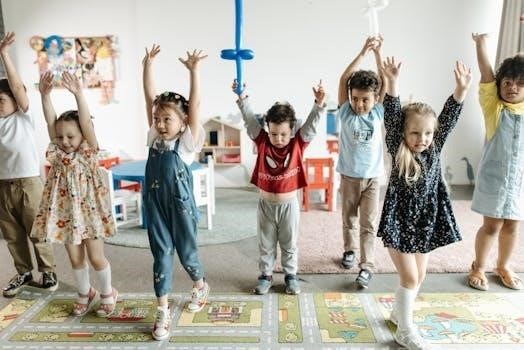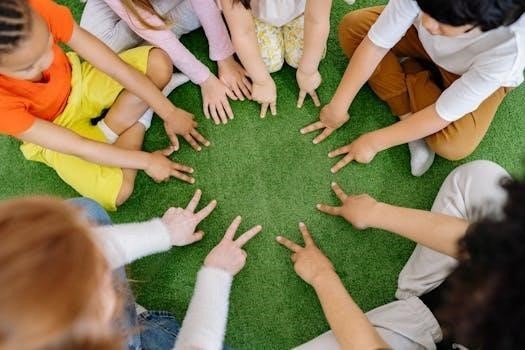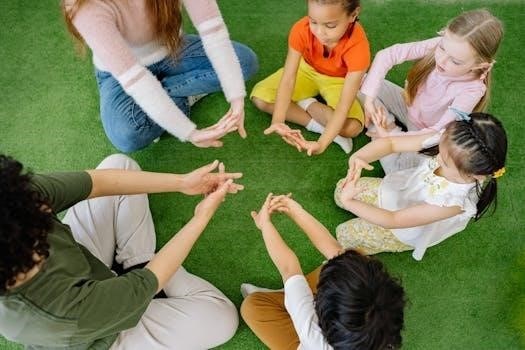What is Social-Emotional Learning (SEL)?
Social-emotional learning (SEL) is the process by which individuals acquire and apply the knowledge, skills, and attitudes to develop self-awareness. It also helps manage emotions, set goals, show empathy, build relationships, and make responsible choices.

Core Competencies of SEL
SEL encompasses five core competencies. They are self-awareness, self-management, social awareness, relationship skills, and responsible decision-making. These competencies are essential for fostering well-rounded individuals who can navigate life’s challenges effectively and contribute positively to their communities.
Self-Awareness
Self-awareness involves understanding one’s own emotions, strengths, weaknesses, values, and beliefs. It’s about recognizing how these aspects influence behavior. Activities promoting self-awareness often include journaling, reflection exercises, and feelings check-ins, helping individuals identify and label their emotions accurately.
Understanding the connection between thoughts, feelings, and actions is crucial for self-awareness. Activities may explore personal values and how they guide decision-making. Identifying personal strengths and areas for growth builds confidence and promotes a realistic self-perception.
Group reflection activities, such as sharing a “rose and thorn” (a positive and a challenge), can foster self-awareness in a collaborative setting. Emotion scales, where individuals rate their feelings, can enhance emotional literacy. Ultimately, self-awareness forms the bedrock for the other SEL competencies, enabling individuals to understand themselves better.
Self-Management
Self-management is the ability to regulate one’s emotions, thoughts, and behaviors effectively in different situations. This includes managing stress, controlling impulses, setting goals, and persevering through challenges. Activities aimed at improving self-management often focus on teaching coping strategies, promoting self-discipline, and developing organizational skills.
Techniques like deep breathing exercises, mindfulness practices, and visualization can help regulate emotions in the moment. Setting SMART goals (Specific, Measurable, Achievable, Relevant, Time-bound) provides a framework for achieving objectives. Activities that involve breaking down large tasks into smaller, manageable steps can foster a sense of accomplishment and build self-efficacy.
Furthermore, learning to manage time effectively, prioritize tasks, and overcome procrastination are essential components of self-management. Identifying personal triggers for negative emotions and developing strategies to address them proactively is also crucial. Self-management skills are vital for academic success, personal well-being, and future career prospects.
Social Awareness
Social awareness involves the ability to understand the perspectives of others, including those from diverse backgrounds and cultures. It encompasses empathy, recognizing social cues, and understanding social norms. Activities that promote social awareness encourage students to consider different viewpoints, appreciate diversity, and recognize the impact of their actions on others.
Role-playing scenarios can help students step into someone else’s shoes and experience different perspectives firsthand. Discussions about current events and social issues can foster critical thinking and encourage students to consider the broader social context. Activities that involve collaborating with peers from different backgrounds can promote understanding and break down stereotypes.
Furthermore, learning about different cultures, traditions, and values can broaden students’ perspectives and promote empathy. Encouraging students to actively listen to others and ask clarifying questions can improve communication skills and foster understanding. Social awareness is essential for building strong relationships, fostering inclusive communities, and promoting social justice. It also involves recognizing and addressing bias and prejudice.
Relationship Skills
Relationship skills encompass the ability to establish and maintain healthy and rewarding relationships with individuals and groups. This involves clear communication, active listening, cooperation, negotiation, conflict resolution, and seeking help when needed. Activities designed to enhance relationship skills focus on building trust, fostering empathy, and promoting effective teamwork.
Group projects provide opportunities for students to practice collaboration and negotiation skills. Role-playing scenarios can help students develop conflict resolution strategies and learn how to communicate assertively. Activities that involve giving and receiving constructive feedback can improve communication skills and foster a growth mindset.
Furthermore, encouraging students to actively listen to others and validate their feelings can strengthen relationships and build trust. Teaching students about the importance of respect, boundaries, and consent can help them navigate relationships in a healthy and responsible manner. Relationship skills are essential for success in school, work, and life. They also involve understanding social cues.
Responsible Decision-Making
Responsible decision-making involves the ability to make constructive choices about personal behavior and social interactions based on ethical standards, safety concerns, social norms, the realistic evaluation of consequences of various actions, and a consideration of the well-being of oneself and others. It requires critical thinking, problem-solving, and the ability to analyze situations objectively.
SEL activities focused on responsible decision-making often involve scenarios that require students to weigh different options and consider the potential consequences of each choice. These activities can help students develop their ethical reasoning skills and learn to make decisions that align with their values.
Furthermore, activities that promote self-reflection and encourage students to consider the impact of their decisions on others can foster a sense of social responsibility. Role-playing exercises can provide students with opportunities to practice making responsible decisions in a safe and supportive environment. They will be prepared for the real world.

Benefits of SEL Activities in the Classroom
SEL activities in the classroom help prime students’ minds for learning by reducing anxiety. It brings attention to tasks. It also fosters kindness, empathy, and inclusion, creating a more positive and productive learning environment for all.
Reducing Anxiety
Social-emotional learning (SEL) activities play a pivotal role in reducing anxiety among students, creating a more conducive environment for learning. By fostering self-awareness and self-management skills, SEL equips students with the tools to understand and regulate their emotions, thereby mitigating feelings of anxiety. Activities that promote mindfulness, such as deep breathing exercises and guided meditation, can help students calm their minds and bodies, reducing stress and promoting a sense of well-being.
Furthermore, SEL activities that focus on building positive relationships and social connections can provide students with a sense of belonging and support, which can buffer against anxiety. When students feel connected to their peers and teachers, they are more likely to feel safe and secure, reducing their overall anxiety levels. Integrating SEL into the classroom can create a supportive atmosphere where students feel comfortable expressing their emotions and seeking help when needed, further contributing to anxiety reduction.
Improving Focus
Social-emotional learning (SEL) activities significantly contribute to improving focus and attention among students, enhancing their ability to engage in learning. SEL equips students with self-management skills, which are essential for regulating emotions and behaviors that can distract from academic tasks. Activities that promote self-awareness, such as identifying emotions and understanding their impact, can help students recognize when they are feeling unfocused and take steps to regain concentration.
Additionally, SEL activities that focus on goal setting and planning can help students develop a sense of purpose and direction, which can increase motivation and focus. By breaking down larger tasks into smaller, manageable steps, students can experience a sense of accomplishment that fuels their focus. Mindfulness exercises, such as focused breathing and body scans, can also improve attention by training students to be present in the moment and resist distractions. Integrating SEL into the classroom fosters a supportive environment where students feel empowered to manage their attention and achieve their learning goals.
Promoting Kindness and Inclusion
Social-emotional learning (SEL) plays a vital role in fostering kindness and inclusion within the classroom environment, creating a more supportive and accepting community for all students. SEL activities that focus on social awareness help students develop empathy and perspective-taking skills, enabling them to understand and appreciate the diverse backgrounds, experiences, and perspectives of their peers.
By engaging in activities that promote active listening and respectful communication, students learn to value the opinions and feelings of others, even when they differ from their own. Relationship-building activities, such as collaborative projects and group discussions, encourage students to work together and develop a sense of belonging. Furthermore, SEL activities that address prejudice and bias can help students challenge stereotypes and develop a more inclusive mindset. By promoting kindness and inclusion, SEL creates a classroom where all students feel valued, respected, and supported, fostering a positive learning environment for everyone.

Free SEL Activities and Resources
Discover a wealth of free social-emotional learning activities and resources designed to support students’ development. These resources offer practical tools for educators to foster essential SEL skills in the classroom.
SEL Activities for Middle School
Explore free social-emotional learning activities tailored for middle school students to enhance their emotional intelligence. These activities focus on building resilience and addressing challenges faced during adolescence. Resilience activities help students cope, recover, and maintain well-being following crises.
Teachers can incorporate resources designed to foster social-emotional competence, aligned with CASEL’s core SEL standards. These standards include self-awareness, self-management, social awareness, relationship skills, and responsible decision-making.
Activities for middle school students encourage emotional intelligence through play with tools like Minecraft Education. Game-based learning inspires students to build emotional intelligence and engage in interactive group reflection. Reflection activities can include identifying positive aspects and challenges.
These free activities provide educators with accessible tools to create supportive learning environments, promoting kindness, inclusion, and overall well-being for middle school students.
SEL Worksheets and Lessons for Elementary and Middle School
Discover a wealth of free social-emotional learning (SEL) worksheets and lessons suitable for both elementary and middle school students. These resources are designed to be easily integrated into classroom activities, with many requiring minimal preparation. Educators can access a collection of no-prep materials aimed at fostering crucial SEL skills.
Worksheets address CASEL’s five core competencies. These competencies help students develop self-awareness, self-management, social awareness, relationship skills, and responsible decision-making. These resources are adaptable for various learning environments.
The worksheets and lessons support kindness and inclusion in classrooms. These resources support emotional intelligence and positive character traits. These resources are designed to support the development of productive and empathetic individuals.
These free, readily available SEL resources empower teachers to nurture essential life skills in students.
SEL Journal Freebie
Unlock the power of self-reflection and emotional exploration with a free Social-Emotional Learning (SEL) journal! This freebie offers a taste of comprehensive SEL resources, providing students with a valuable tool for developing self-awareness and emotional regulation. These activities help you connect with each student and their emotional journey.
This SEL Journal Freebie includes a collection of journal pages designed to cultivate essential SEL skills. Each page focuses on a specific skill. These pages offer a structured approach to exploring emotions and developing coping strategies. This provides a safe and supportive space for self-discovery.
Download this free SEL journal to introduce your students to the benefits of journaling for emotional well-being. It’s a practical and engaging way to integrate SEL into your curriculum. This allows you to check in with your students’ emotional well-being.

These resources are sampled from the SEL Journal Bundle. Each download contains ten different journal pages.


